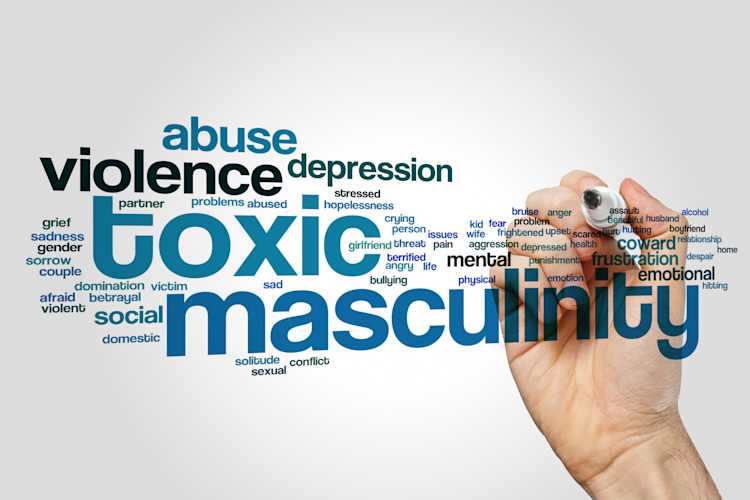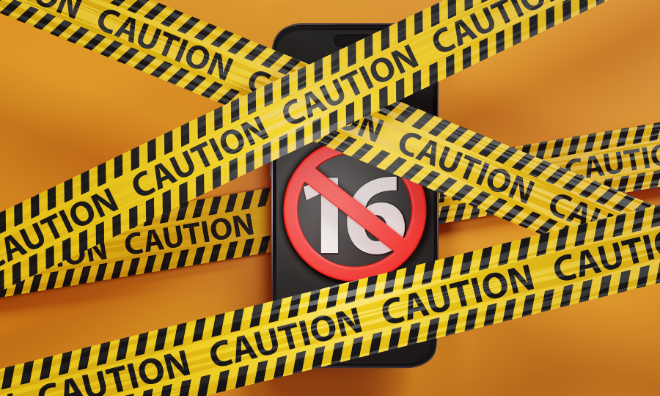Monitoring Online Extremism: Tackling Toxic Masculinity and the Manosphere in Schools

by

Bec May
It's no secret to Australian educators that misogynistic gender narratives, toxic masculinity, and associated extremist ideologies have gained traction among young boys and men in recent years. The rise of social media influencers, often referred to as 'manfluencers' - such as Andrew Tate - has played a significant role in amplifying these ideas. Collectively grouped under the term ‘the manosphere', these harmful ideologies encompass online communities and content that promote male superiority, hyper-masculinity, and the denigration of women and gender equity.
Teachers and parents have increasingly reported troubling behaviours in schools, which they believe are directly linked to the online spread of these beliefs. Research from Monash University reveals a significant uptick in overt displays of male dominance, including sexism and harassment towards both female students and teachers, driven by the influence of these narratives. Psychologists have further noted that young people with low self-esteem are particularly vulnerable to adopting these ideologies as they seek a sense of connection and validation in online spaces.
So, how can classroom teachers challenge misogyny in their classrooms? And what steps can school leaders take to foster safer, more inclusive environments?
The rise of the manosphere: Andrew Tate, incels and red-pillers
The term 'manosphere' may have only come to light in recent years, but the gender-biased ideologies and associated behaviours it represents are far from new. What sets the current wave apart is the role of the internet in accelerating the spread of extreme anti-feminist views, misogyny, and even violent rhetoric.
Digital platforms have become fertile breeding grounds for these ideologies, with communities on Reddit, figures like RooshV, and online subcultures, such as Involuntary Celibates (incels) contributing to the rise of terminology like 'red pill' and 'black pill'.
The manosphere isn't a single entity but a sprawling, interconnected network of online communities unified by a common belief: that masculinity is under siege. The way this belief plays out varies, from incels, who blame their lack of romantic success on systemic gender biases, to Men's Rights Activists (MRAs), who argue that men are victims of institutional discrimination. Red-pillers position themselves as enlightened individuals who see through the lies of feminism, while other factions advocate outright rejection of societal norms.
The influence of Andrew Tate in Australian schools
In 2022, the landscape changed dramatically with the emergence of Andrew Tate. Often referred to as a 'manfluencer,' Tate leveraged social media to reach millions of young men, positioning himself as a self-proclaimed guru of success, hypermasculinity, and anti-feminism. His content, amplified by platforms like TikTok and YouTube, marked a turning point, making manosphere ideologies more mainstream and accessible than ever before. This shift brought these once-fringe beliefs into everyday conversations, including in schools, where their impact is now becoming alarmingly clear.
Few figures encapsulate the essence of the manosphere like the now infamous 'king of toxic masculinity’, Andrew Tate. A former kickboxing champion turned social media powerhouse, Tate's online presence skyrocketed as he cultivated a global following; his brash rhetoric, often disguised as motivational advice, resonated with young men searching for direction and validation. However, his overtly misogynistic messaging, which framed women as inferior and glorified dominance over them, led to bans from several major platforms in 2022.
Not one to be easily swayed from his mission, Tate swiftly pivoted his strategy, adeptly circumventing these restrictions by using less regulated platforms such as Rumble and Telegram and relying on his network of followers to redistribute his content across social media. His affiliate marketing program, Hustler's University - later relaunched as The Real World - which gained over 100,000 subscribers, played a pivotal role in amplifying and sustaining his influence. While the program promised financial freedom, branding itself as an online business course, its underlying function was to recruit and disseminate his ideology.
In addition to this, Tate also started a secretive group known as The War Room, which has faced widespread criticism for promoting harmful behaviours. A BBC investigation accused the group of coercing women into sex work and teaching methods of violence against women.
The ability to duck and weave from restrictions, scrutiny, and even visibility is a trend that runs across the manosphere. Forums like Reddit, anonymous messaging platforms and privately held websites serve as hubs for these communities, allowing them to fly under the radar of mainstream regulation.
At the heart of these communities lies the propagation of toxic gender narratives that promote male victimhood while vilifying women and gender equity. Research from the Southern Poverty Law Center (SPLC) underscores the troubling overlap between manosphere ideologies and other extremist movements, such as white supremacy, which amplifies the spread of hateful content and underscores the need for urgent intervention.
The link between the manosphere and extremism IRL
At its least harmful, the sexist attitudes of the manosphere lead to sexual harassment and verbal and emotional abuse. In its worst iteration, these groups promote sexual abuse, gender-based violence, and mass murder. Research shows that there is significant and concerning cross-pollination between the toxic masculinity of the manosphere and right-wing extremism, with both movements sharing underlying narratives of grievance, victimhood, and a rejection of progressive values.
While affiliates of one group may not necessarily identify with the other, their ideologies often intersect, creating an ecosystem where hate and radicalisation thrive. This alignment has contributed to a significant number of high-profile, tragic incidents that underscore the real-world dangers of these beliefs.
The Isla Vista Killings (2014): In the first widely publicised crime case linked to the manosphere, Elliot Rodger, a self-identified incel, killed six people and injured 14 others near the University of California, Santa Barbara. Rodger's manifesto revealed deep resentment towards women and society, whom he blamed for his lack of romantic and social success. This tragic incident brought toxic masculinity into the public eye, with Roger becoming a figure of admiration in certain online communities where references to 'going ER' are now used as shorthand for violent retribution.
The Toronto Van Attack (2018): Alex Minassian drove a van into pedestrians in Toronto, killing ten people and injuring 16. Declaring allegiance to incel ideologies, Minassian praised Elliott Roger in a social media post referring to him as the 'Supreme Gentleman'. This attack highlighted the manosphere's glorification of violence as retribution for perceived societal injustices, with terms like 'Incel Rebellion' gaining traction in extremist communities.
The Aztec High School Shooting (2017): William Atchison, a former student, killed two students at Aztec High School before taking his own life. Atchison was known for actively promoting misogyny and far-right ideologies, using online forums to express his hatred and align himself with extremist beliefs. Atchison's actions tragically highlighted the intersection of manosphere narratives with broader extremist movements, showcasing how these online spaces can normalise violent retaliation as an acceptable outlet for frustration and resentment.
Plymouth shooting (2021): Jake Davison killed five people, including a child, in Plymouth, England, before taking his own life. Investigation into Davison's online activity revealed his alignment with incel narratives, where he regularly blamed women and societal changes for his struggles.
Addressing the rise of misogyny and toxic masculinity in schools
The spread of misogynistic ideologies and toxic masculinity in schools, fueled by the proliferation of online content promoting male dominance and the denigration of women, has become a pressing concern for Australian educators.
As these harmful narratives infiltrate school environments, they manifest in behaviours that disrupt learning, undermine respect, and, in the worst cases, lead to acts of extremism.
A growing body of evidence indicates that the manosphere's toxic influence is not limited to the dialogue inside chatrooms and other online spaces. Recent studies have documented:
Increased verbal harassment: Reports of students using misogynist phrases, often derived from online influencers, to provoke and demean female peers and staff.
Gender-based bullying: Instances where boys adopt dominant or exclusionary behaviours that marginalise female students.
Resistance to authority: A resurgence of patriarchal attitudes, leading to challenges against female teacher's authority.
Challenges in monitoring toxic masculinity in schools
Monitoring the spread of toxic narratives, including misogyny and toxic masculinity, within schools presents a significant challenge for educators. These harmful ideologies often originate in obscure corners of the Internet, including anonymous forums, encrypted messaging apps, or lesser-known social media platforms. This makes it difficult to track and address the influence on student behaviour effectively.
Challenges in monitoring the manosphere
Decentralised Platforms: Content linked to the manosphere frequently appears on platforms like Reddit, Telegram, and Rumble, which operate with minimal moderation. These spaces allow harmful ideologies to spread unchecked.
Algorithmic amplification: Popular social media platforms such as TikTok and YouTube inadvertently amplify toxic content through recommendation algorithms, exposing students to manosphere ideologies even if they don't actively seek them out.
Anonymity and Encryption: The use of anonymous accounts and encrypted platforms shields participants making it harder to trace the origin of harmful behaviour.
Evolving Terminology: The manosphere's language continually evolves with new terms and slang emerging to avoid detection by monitoring tools.
How schools can address monitoring challenges
Advanced Internet Monitoring Tools: Implementing robust monitoring solutions like Fastvue Reporter can help schools monitor online activity and detect harmful behaviours by flagging concerning keywords, phrases and platform usage.
Customisable Keyword Lists: Tools must adapt to recognise the ever-changing language of toxic communities to ensure no harmful comfort content slips through the cracks.
Real-time Reporting: Real-time insights allow educators to address concerning behaviours before they escalate, providing opportunities and resources for early intervention.
Collaborative Approaches: Schools, parents, and policymakers work together to create a united front against toxic influences, ensuring students are safeguarded at school and home.
What teachers and pastoral care teams should be looking for
General Terms and Concepts
Manosphere
Misogyny online
Male supremacy
Incel
Men’s Rights Activist (MRA)
Pick-Up Artist (PUA)
Red pill
Black pill
Blue pill
Pink pill
Hypergamy
Gynocentrism
Femoids
AWALT (All women are like that)
Branch-swinging
Vine-swinging
Toxic masculinity
Personas, Figures, and Incidents
Elliot Rodger
Supreme Gentleman Elliot Rodger
Saint Elliot
Alek Minassian
Roosh V
Paul Elam
Andrew Anglin
Dick Masterson
Matt Forney
Isla Vista killings
Toronto van attack
Massage parlour stabbing Toronto
San Bernardino shooting
Slang and Derogatory Terms
Chads
Stacys
Beckys
Soy boy
LDAR (Lie Down and Rot)
Go ER (referring to Elliot Rodger)
Normies
Rapecel
Rhetoric and Phrases
Dehumanisation of women
Anti-feminism
Women’s place in the home
Mocking consent
Women as property
Manipulative women tropes
"Take the red pill"
"Legalise rape on private property"
"Pilling others"
“Women are like chimps”
Online Platforms and Groups
Return of Kings
A Voice for Men
WikiMANNia
The Daily Stormer
RooshV.com
MGTOW
Specific Ideological Concepts
Male victimhood
Anti-gender equality
Anti-modern relationships
Belittling women
Women’s suffrage criticism
Anti-education for women
Hypergamous women narrative
“Manipulation tool” rhetoric
Potentially Concerning Hashtags/Trends
#IncelRebellion
#RedPill
#MRA
By understanding the challenges associated with the manosphere, and adopting proactive measures, schools can successfully navigate the complexities of monitoring toxic narratives. Solutions like Fastvue empowers educators to avoid these evolving threats, enabling them to identify early warning signs, support vulnerable students, and address problematic behaviours before they escalate. With tools that provide actionable insights, schools can foster a safer, more inclusive educational environment where students can thrive academically, socially, and emotionally.
Don't take our word for it. Try for yourself.
Download Fastvue Reporter and try it free for 14 days, or schedule a demo and we'll show you how it works.
- Share this storyfacebooktwitterlinkedIn

